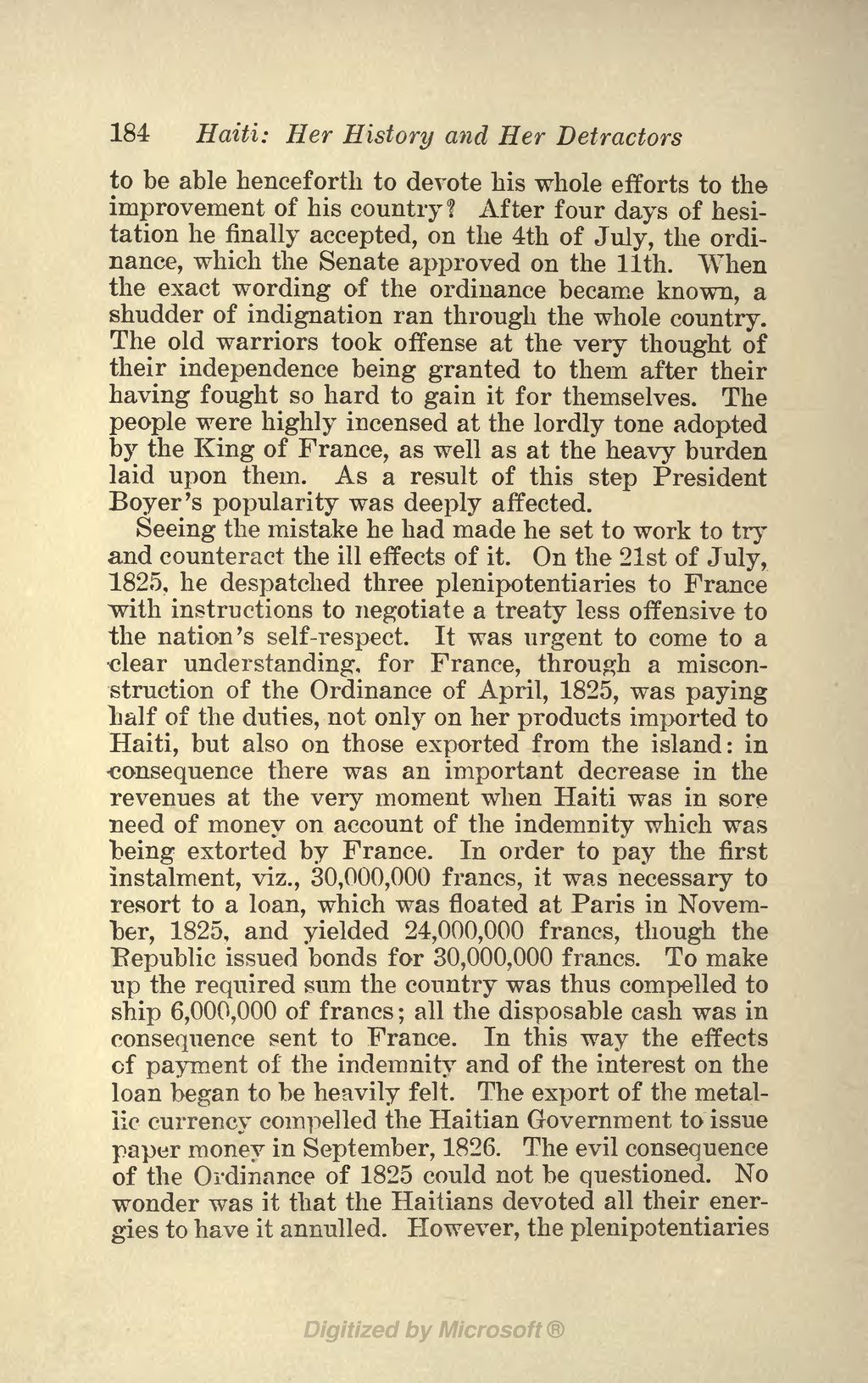to be able henceforth to devote his whole efforts to the improvement of his country! After four days of hesitation he finally accepted, on the 4th of July, the ordinance, which the Senate approved on the llth. When the exact wording of the ordinance became known, a shudder of indignation ran through the whole country. The old warriors took offense at the very thought of their independence being granted to them after their having fought so hard to gain it for themselves. The people were highly incensed at the lordly tone adopted by the King of France, as well as at the heavy burden laid upon them. As a result of this step President Boyer's popularity was deeply affected.
Seeing the mistake he had made he set to work to try and counteract the ill effects of it. On the 21st of July, 1825, he despatched three plenipotentiaries to France with instructions to negotiate a treaty less offensive to the nation's self-respect. It was urgent to come to a clear understanding, for France, through a misconstruction of the Ordinance of April, 1825, was paying half of the duties, not only on her products imported to Haiti, but also on those exported from the island: in consequence there was an important decrease in the revenues at the very moment when Haiti was in sore need of money on account of the indemnity which was being extorted by France. In order to pay the first instalment, viz., 30,000,000 francs, it was necessary to resort to a loan, which was floated at Paris in November, 1825, and yielded 24,000,000 francs, though the Republic issued bonds for 30,000,000 francs. To make up the required sum the country was thus compelled to ship 6,000,000 of francs; all the disposable cash was in consequence sent to France. In this way the effects of payment of the indemnity and of the interest on the loan began to be heavily felt. The export of the metallic currency compelled the Haitian Government to issue paper money in September, 1826. The evil consequence of the Ordinance of 1825 could not be questioned. No wonder was it that the Haitians devoted all their energies to have it annulled. However, the plenipotentiaries
